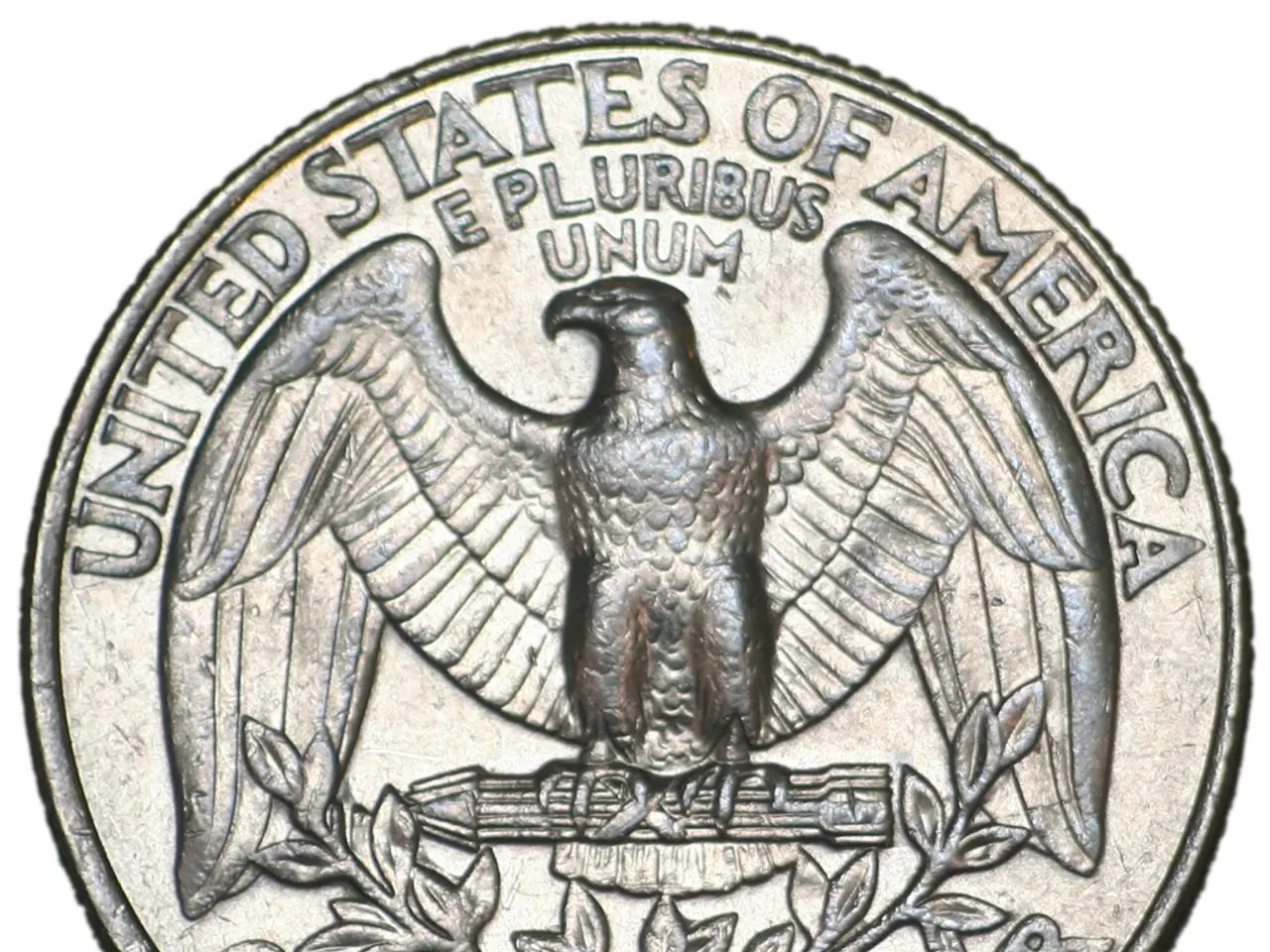Trump Proposes Inclusion of Cryptocurrency in 401(k) Retirement Plans
In a move that could broaden investment choices for millions of Americans, President Donald Trump issued an executive order aimed at opening up workers' retirement accounts to investments in private equity and digital assets like cryptocurrencies. This decision, however, has sparked a heated debate, with concerns about potential risks and fiduciary complexities.
Currently, most Americans are restricted from investing in alternative assets, unlike wealthy investors and retirement plans for government workers. The Labor Department, during the Biden administration, urged extreme caution before considering adding cryptocurrency options to 401(k) plans. The Biden administration's 2023 report declared digital assets offer "no widespread economic benefits."
Allowing investments in private equity and digital assets in workers' 401(k) accounts could potentially increase diversification and offer higher returns for investors with long time horizons. However, these investments also entail significant risks and challenges.
One of the key implications and risks is illiquidity and valuation complexity. Private equity and many digital assets, like cryptocurrencies, are not easily tradable and lack daily liquidity, conflicting with 401(k) plans' usual requirement for daily participant liquidity and valuation transparency.
Another concern is higher fees. These alternative assets typically charge higher management fees compared to traditional mutual funds or ETFs, which can erode net returns to workers. Uncertain returns and volatility are also a worry, as evidence from state and local pension plans shows private equity has not consistently improved returns or reduced volatility. Digital assets are highly volatile, raising concerns about potential large losses in workers' retirement savings.
Fiduciary and litigation risks are another factor. Historically, plan fiduciaries have been reluctant to include alternatives due to fiduciary duty under ERISA and the threat of participant litigation related to the prudence of such investments. The recent Executive Order and Department of Labor (DOL) guidance aim to reduce this barrier, but fiduciaries must still conduct careful, objective evaluation to comply with prudence and loyalty standards.
Despite these risks, if managed prudently within diversified funds by professionals, private equity might contribute to better diversification and enhanced expected returns for long-term investors. Digital assets could offer novel return sources, but their inclusion should be cautious and limited due to their speculative nature.
Administrative challenges also arise from including illiquid and complex assets in 401(k) plans, requiring plan sponsors and recordkeepers to develop solutions before widespread adoption.
The crypto industry, which spent heavily on the presidential race and congressional campaigns last year, has reaped rewards in the first half of 2025 following its investments. Trump signed a bill into law regulating a type of digital assets known as stablecoins earlier this summer. The U.S. Department of Labor is directed to revise its guidance for fiduciaries regarding cryptocurrency investments in 401(k) plans.
Crypto skeptics decried the move, expressing concerns about potential scams and the impact on Americans' retirements. The price of Bitcoin and other digital assets surged on Thursday following President Trump's order, and the crypto industry's market capitalization on Thursday approached $4 trillion.
A bipartisan coalition of lawmakers is hoping to push through another bill creating a favorable regulatory regime for the broader crypto industry. The order does not immediately change rules for 401(k) investors, but allows for the expansion of consumer choice and individual empowerment in building wealth using cryptocurrencies.
In summary, while allowing private equity and digital assets in 401(k) plans could broaden investment choices and potentially improve outcomes for some workers, the associated risks and fiduciary complexities are significant. Appropriate safeguards, thorough due diligence, and regulatory guidance are crucial to protect retirement savers.
- The inclusion of digital assets like cryptocurrencies in workers' 401(k) accounts may offer novel return sources, but their speculative nature necessitates cautious and limited investment due to potential large losses in retirement savings.
- The expansion of investment choices for workers' retirement accounts to include finance-based alternatives such as private equity could involve higher fees and administrative challenges, which fiduciaries must consider before inclusion to ensure prudent and responsible decision-making.




